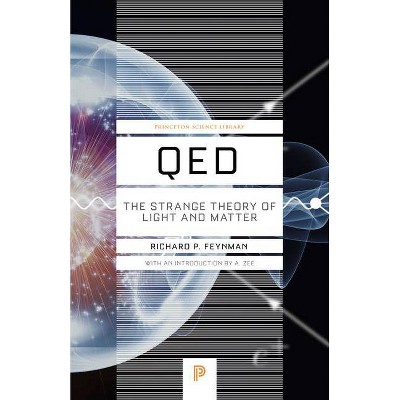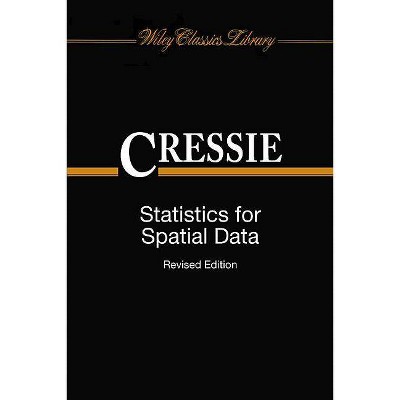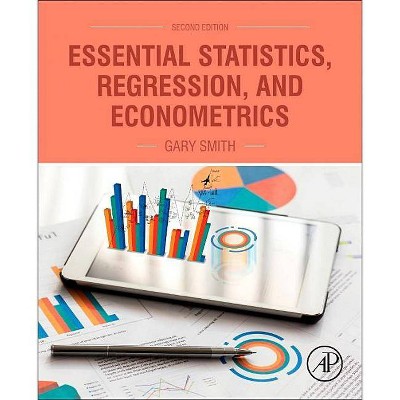An Imaginary Tale - (Princeton Science Library) by Paul J Nahin (Paperback)

Similar Products
Products of same category from the store
AllProduct info
<p/><br></br><p><b> About the Book </b></p></br></br>In the title, "[the square root of minus one]" appears as a radical over "-1."<p/><br></br><p><b> Book Synopsis </b></p></br></br><p>Today complex numbers have such widespread practical use--from electrical engineering to aeronautics--that few people would expect the story behind their derivation to be filled with adventure and enigma. In <i>An Imaginary Tale</i>, Paul Nahin tells the 2000-year-old history of one of mathematics' most elusive numbers, the square root of minus one, also known as <i>i</i>. He recreates the baffling mathematical problems that conjured it up, and the colorful characters who tried to solve them. <p/>In 1878, when two brothers stole a mathematical papyrus from the ancient Egyptian burial site in the Valley of Kings, they led scholars to the earliest known occurrence of the square root of a negative number. The papyrus offered a specific numerical example of how to calculate the volume of a truncated square pyramid, which implied the need for <i>i</i>. In the first century, the mathematician-engineer Heron of Alexandria encountered <i>I </i>in a separate project, but fudged the arithmetic; medieval mathematicians stumbled upon the concept while grappling with the meaning of negative numbers, but dismissed their square roots as nonsense. By the time of Descartes, a theoretical use for these elusive square roots--now called imaginary numbers--was suspected, but efforts to solve them led to intense, bitter debates. The notorious <i>i</i> finally won acceptance and was put to use in complex analysis and theoretical physics in Napoleonic times. <p/>Addressing readers with both a general and scholarly interest in mathematics, Nahin weaves into this narrative entertaining historical facts and mathematical discussions, including the application of complex numbers and functions to important problems, such as Kepler's laws of planetary motion and ac electrical circuits. This book can be read as an engaging history, almost a biography, of one of the most evasive and pervasive numbers in all of mathematics.</p><p/><br></br><p><b> From the Back Cover </b></p></br></br><p>"Dispelling many common myths about the origin of the mystic 'imaginary' unit, Nahin tells the story of <i>i</i> from a historic as well as human perspective. His enthusiasm and informal style easily catch on to the reader. <i>An Imaginary Tale</i> is a must for anyone curious about the evolution of our number concept."<b>--Eli Maor, author of <i>Trigonometric Delights</i>, <i>e: The Story of a Number</i>, and <i>To Infinity and Beyond</i></b></p><p/><br></br><p><b> Review Quotes </b></p></br></br><br><i>An Imaginary Tale</i> is marvelous reading and hard to put down. Readers will find that Nahin has cleared up many of the mysteries surrounding the use of complex numbers.<b>---Victor J. Katz, <i>Science</i></b><br><br>[<i>An Imaginary Tale</i>] can be read for fun and profit by anyone who has taken courses in introductory calculus, plane geometry and trigonometry.<b>---William Thompson, <i>American Scientist</i></b><br><br>A book-length hymn of praise to the square root of minus one.<b>---Brian Rotman, <i>Times Literary Supplement</i></b><br><br>Attempting to explain imaginary numbers to a non-mathematician can be a frustrating experience. . . . On such occasions, it would be most useful to have a copy of Paul Nahin's excellent book at hand.<b>---A. Rice, <i>Mathematical Gazette</i></b><br><br>Honorable Mention for the 1998 Award for Best Professional/Scholarly Book in Mathematics, Association of American Publishers<br><br>Imaginary numbers! Threeve! Ninety-fifteen! No, not those kind of imaginary numbers. If you have any interest in where the concept of imaginary numbers comes from, you will be drawn into the wonderful stories of how <i>i</i> was discovered.<b>---Rebecca Russ, <i>Math Horizons</i></b><br><br>Nahin has given us a fine addition to the family of books about particular numbers. It is interesting to speculate what the next member of the family will be about. Zero? The Euler constant? The square root of two? While we are waiting, we can enjoy <i>An Imaginary Tale</i>.<b>---Ed Sandifer, <i>MAA Online</i></b><br><br>One of Choice's Outstanding Academic Titles for 1999<br><br>Paul Nahin's book is a delightful romp through the development of imaginary numbers.<b>---Robin J. Wilson, <i>London Mathematical Society Newsletter</i></b><br><br>Someone has finally delivered a definitive history of this 'imaginary' number. . . . A must read for anyone interested in mathematics and its history.<b>---D. S. Larson, <i>Choice</i></b><br><br>There will be something of reward in this book for everyone.<b>---R.G. Keesing, <i>Contemporary Physics</i></b><br><br>You will definitely enjoy it. In fact it clearly reflects the the joy and delight that the author experienced when he was confronted with complex analysis during his engineering studies.<b>---Adhemar Bultheel, <i>European Mathematical Society</i></b><br><p/><br></br><p><b> About the Author </b></p></br></br><b>Paul J. Nahin</b> is professor emeritus of electrical engineering at the University of New Hampshire and the author of many best-selling popular math books, including <i>The Logician and the Engineer</i> and <i>Will You Be Alive 10 Years from Now?</i> (both Princeton).
Price History
Cheapest price in the interval: 14.69 on November 8, 2021
Most expensive price in the interval: 14.69 on December 20, 2021
Price Archive shows prices from various stores, lets you see history and find the cheapest. There is no actual sale on the website. For all support, inquiry and suggestion messagescommunication@pricearchive.us




















